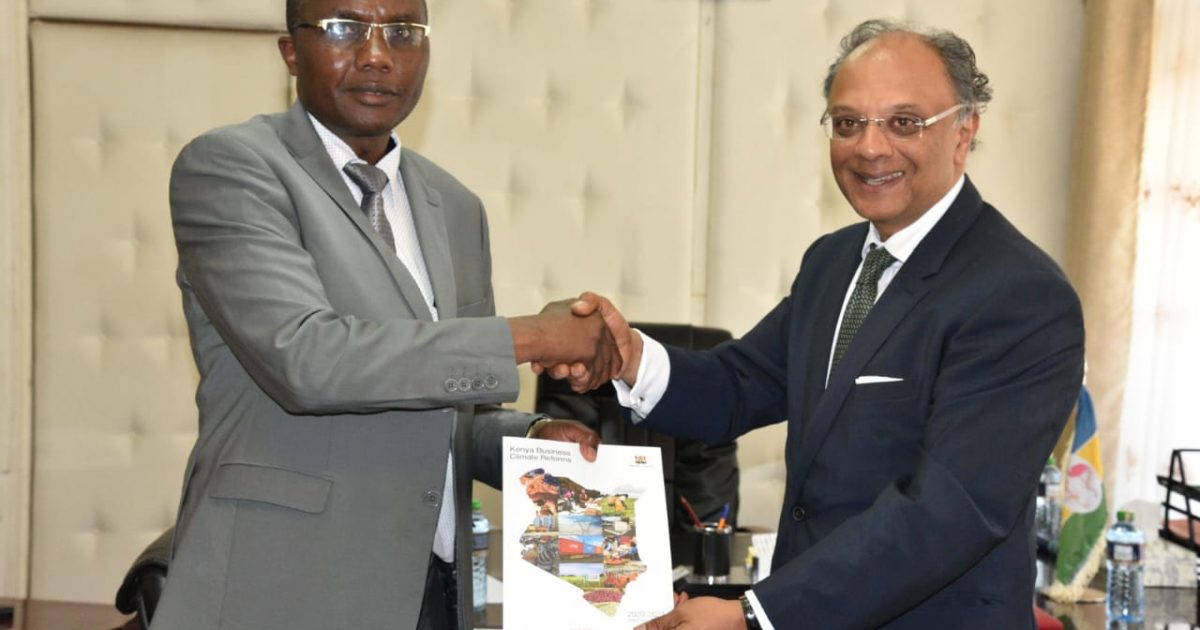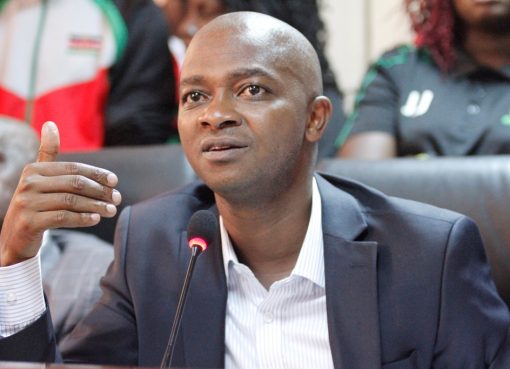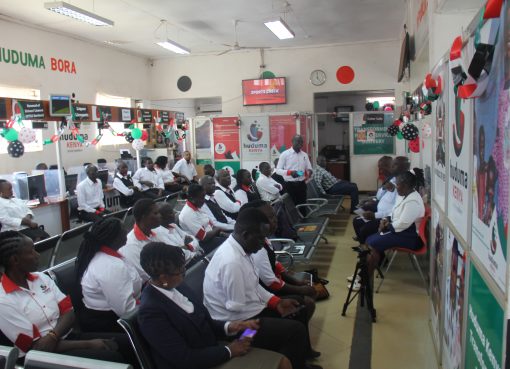The national government is keen to enter into partnerships with the county governments in a bid to eliminate hindrances to regional trade and access to international markets.
State Department for East African Community Principal Secretary Dr Kevit Desai said that the government was committed to undertaking reforms that will ease doing business across the East African community by creating a conducive investment environment for small and medium enterprises.
Dr Desai who spoke in Nakuru when he paid a courtesy call on deputy governor David Kones said that the State department would work closely with the Council of Governors in harmonising tariffs paid by business people to avoid duplication of payments.
The PS said that there was need for counties to agree on the centralisation of a permit issuance office and especially for long distance trucks that traverse several counties so as to avoid duplication of payments. This, he noted, would result in a simplified and cost-effective mode of doing business.
Dr Desai said the government was keen on having close engagements with key stakeholders including representatives from Kenya National Chamber of Commerce and Industry (KNCCI) to create enabling business ecosystems to spur local investments and expand the existing markets.
The department, the PS revealed, was already engaged in undertaking reforms in various areas of trade including business legislation and licensing, policy frameworks, tax regimes, trade levies and incentives for investors.
“There is a need to appreciate the dynamic nature of business and this is why engagement with counties will focus on promotion of favourable business and industrial investment environments,” Dr Desai further added.
Dr Desai detailed that the government was keen on tapping into the enormous business potential presented through the regional integration of East African Community hence the need to urgently identify specific road blocks that hinder investments and trade within the region.
The entry of the Democratic Republic of Congo into the East African Community had further expanded the horizon for member states hence an even larger market for goods and services, he added.
He added that the reforms would not only enhance the ease of doing business for investors and traders in the counties but would also rapidly expand and make accessible the external markets offered by members of EAC.
Dr Desai pointed out that comprehensive business reforms had already been undertaken in the capital county of Nairobi with high success rates, a model that they intend to replicate in a number of other counties.
“The county government must be willing to encourage investors. One of the key driving factors for business people is the ease of doing business and opportunities available for expansion,” he said.
The PS stated that county governments must create investment-friendly systems that investors find attractive due to the intensified competition from other regions.
Deputy governor Kones told the PS that he and the governor Susan Kihika had undertaken to support small and medium enterprises by creating business friendly systems that will simplify doing business in the county.
Kones further said such systems would promote local manufacturing, enhance value addition, boost technology transfer and identify markets for their locally produced goods.
“Our manifesto is very clear on what we need to do to support the hustler at the very bottom of the chain to become economically empowered. For example, as we urge farmers to grow food, we must ensure there is a ready market for that food,” he said.
“We will support initiatives that promote close-working relationships between the county governments and the national governments to promote local investors”, the DG added.
By Jane Ngugi





